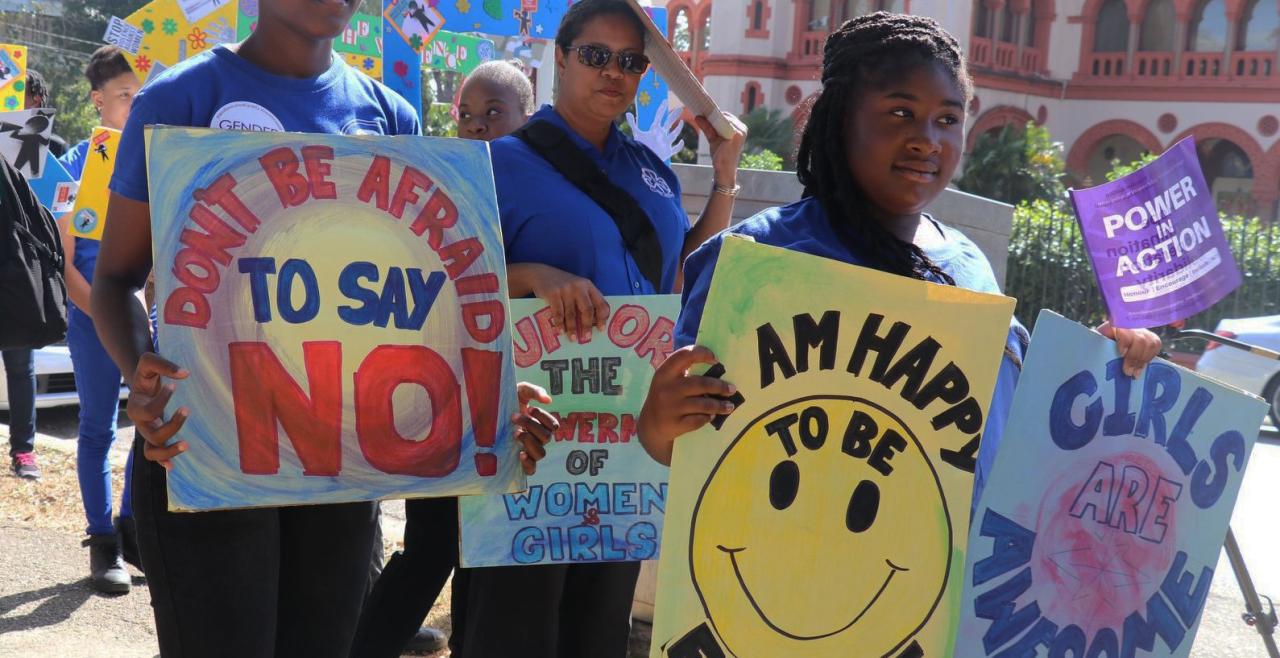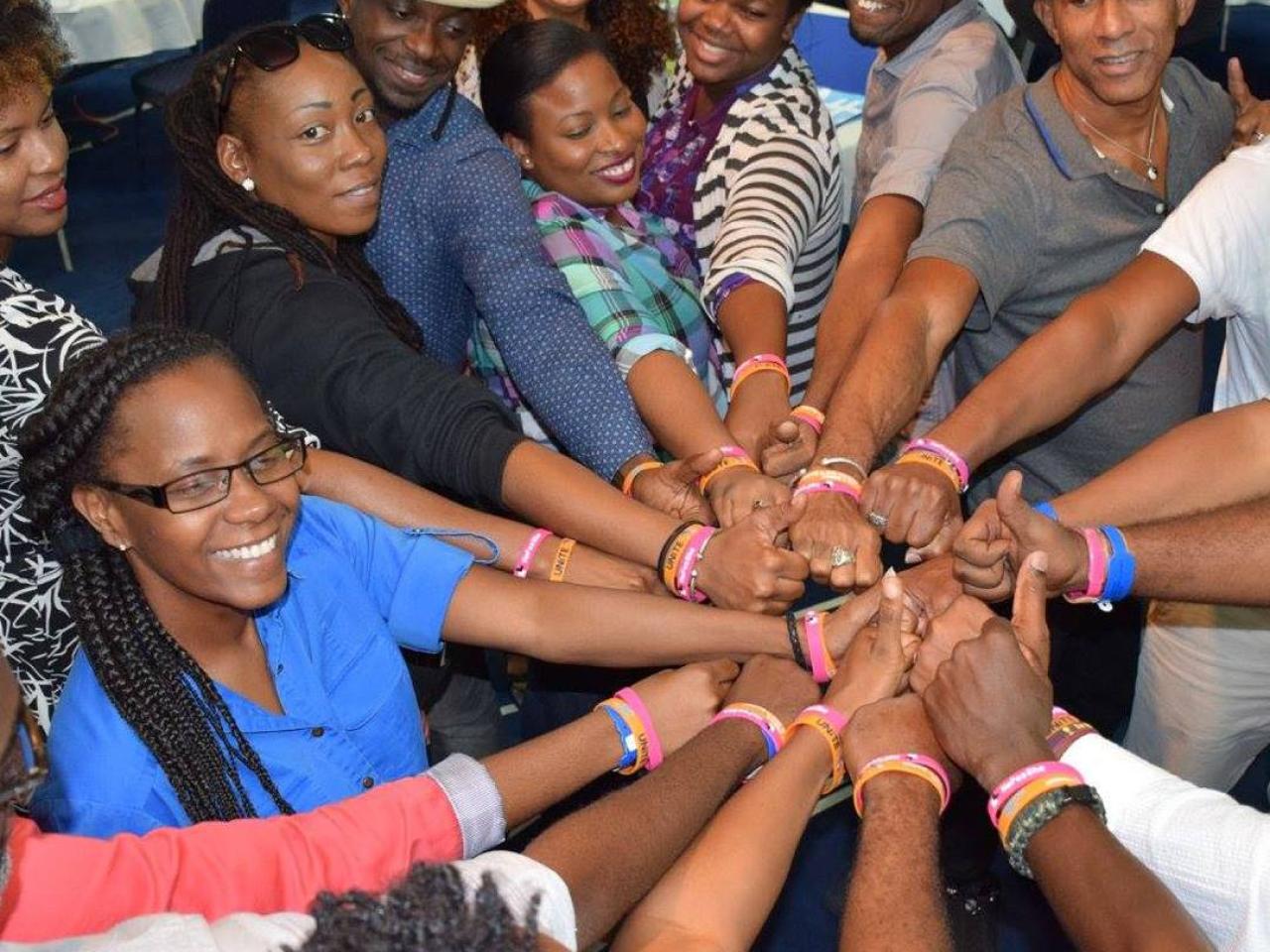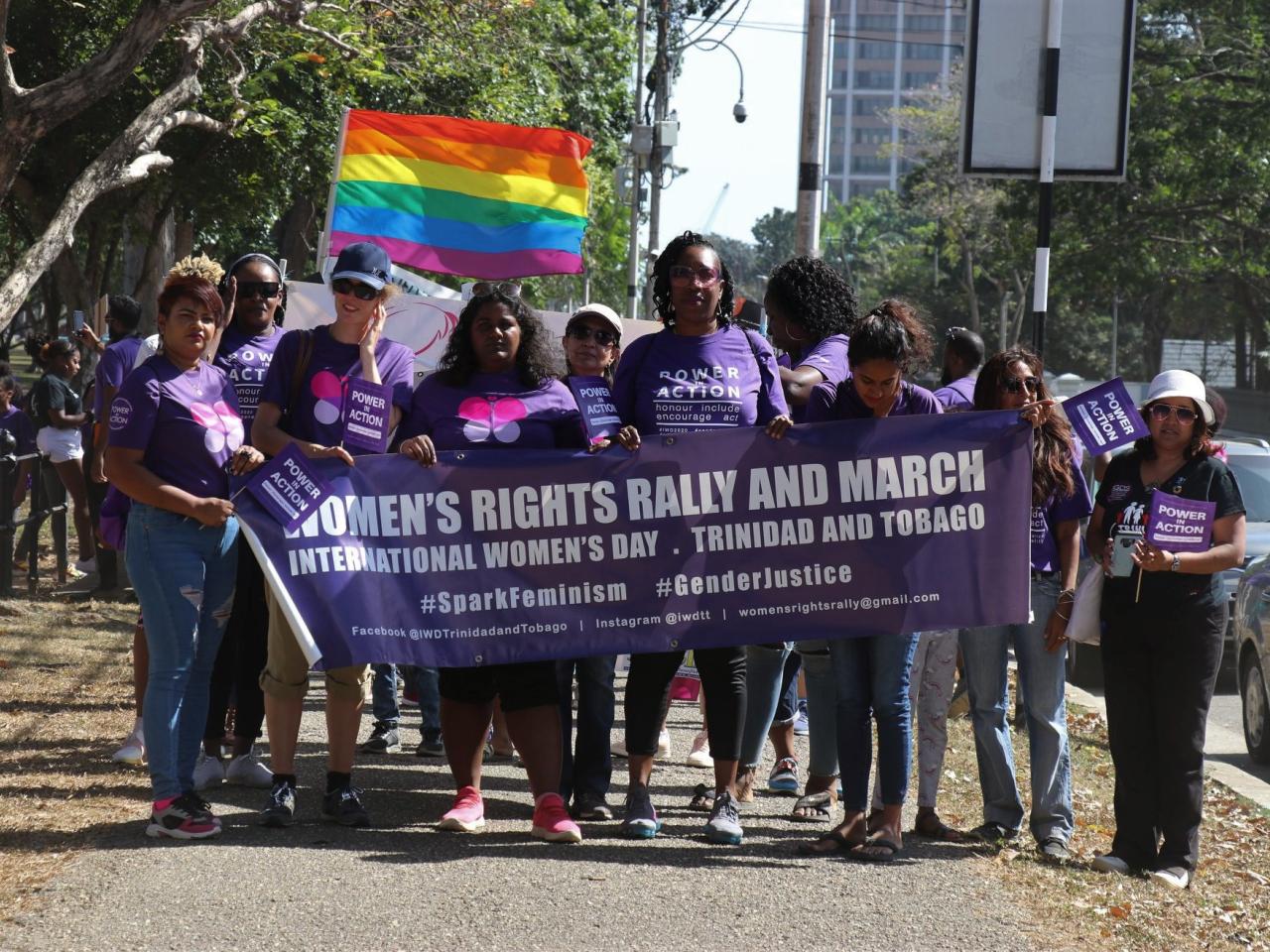In Trinidad and Tobago, an activist explains how to be an ally to women and girls

PORT OF SPAIN, Trinidad and Tobago - Family violence can be difficult to address. Domestic abuse often happens behind closed doors, sometimes for years, without family or friends knowing. Many people may also be reluctant to intervene in what they consider 'man and woman business' or lovers' disputes, while others fear becoming involved in a situation that might directly expose them to harm.
Gender-based violence (GBV) typically becomes a topic of national conversation only when abuse in the home spills into the news headlines.
According to the Victim and Witness Support Unit in the Trinidad and Tobago Police Service, between 2008 and 2015, there were 7,000 reported cases of domestic abuse. During that period, almost 300 women were killed by their abusers. In 2017, family violence claimed the lives of 43 women.
Delores Robinson is Executive Director of GROOTS T&T, a Tunapuna-based Spotlight Initiative partner organization that opened its first transition home for vulnerable communities, including family violence survivors, in 2018. According to Ms. Robinson, society and bystanders are a crucial ally in eradicating GBV and supporting survivors. "'If you're keen to help, first assure the person they did nothing deserving of abuse," she says. "Teach them about the cycle of violence and the Domestic Violence Act. Let them know their legal options, should their situation become unbearable."
Below, she offers some tips on how to become part of the movement to eliminate violence against women and girls.
Befriend women and girls who may be isolated
If you suspect a neighbour or someone you know is living with family violence, offer a sympathetic ear. Give them a space where they feel comfortable to speak and allow them to share the difficulties they face in a frank way. It's important to listen in a compassionate, non-judgemental way. Don't badger victims about why they haven't left their abuser or involved the police. The last thing someone struggling to cope with abuse wants is another reproachful voice.
Draft safety protocols
Work out a set of safety protocols for those experiencing family violence. These can include coded warning text messages they can send you when in distress, and exit strategies for getting to safety during or prior to a violent confrontation.
Provide service information
Conduct research on civil society organizations that provide support and shelter for women and girls in violent settings. Assemble a dossier of contact information, including family violence hotlines, counselling services, relevant civil society organizations and NGOs, and the police service. Let the at-risk individual know that they can contact the police gender-based violence unit, who offer the option of being taken to an undisclosed, safe location.
By sharing this information, anyone in need of help will be able to quickly access resources and support to keep themselves and their families safe.
"Ensure they know there's a support group that's just a phone call away," says Ms. Robinson.
Understand that family violence is everyone's responsibility
While civil society organizations like GROOTS T&T are working towards eradicating family violence in Trinidad and Tobago, this is a shared responsibility.
"Through increased awareness, citizens can help or even save a life when episodes of family violence present themselves," says Ms. Robinson. "We must reinforce the message of 'if you see something, say something' across the country."
The Spotlight Initiative is working alongside civil society groups such as GROOTS T&T to combat family violence. This includes boosting awareness of the issue and offering hope, support and counselling to women and girls affected by abuse. The Initiative's efforts in Trinidad and Tobago are focused on the municipalities of Tunapuna, Mayaro and Tobago.
By Paolo Kernhan


